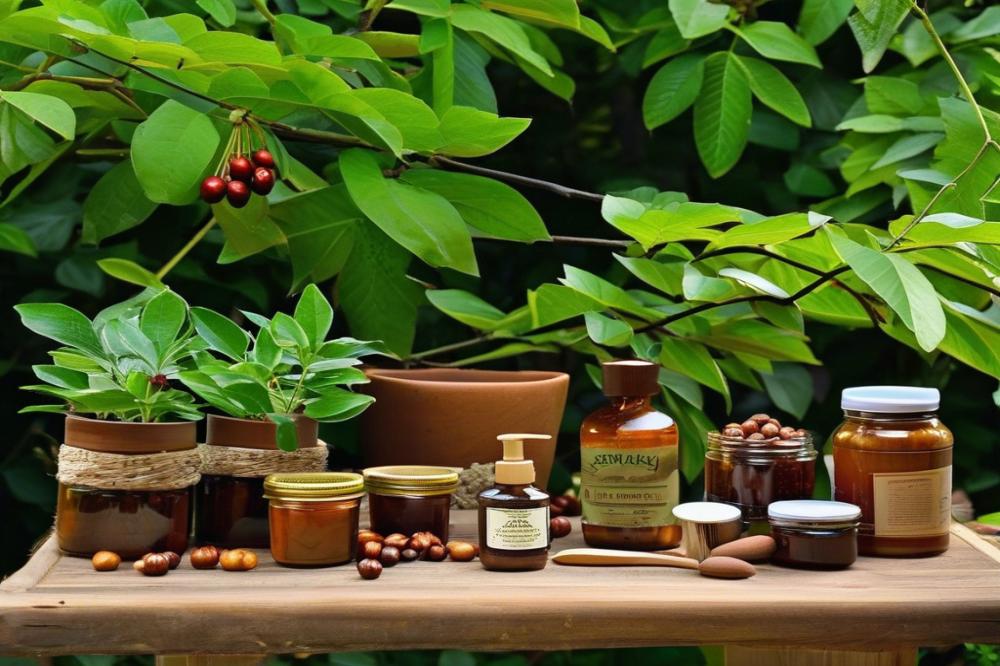Understanding Natural Pest Deterrence
Natural pest deterrence plays a crucial role in the world of organic gardening. The importance lies in creating a healthy ecosystem while protecting plants from harmful insects. When we think about pest control, the goal is not just to eliminate threats but to do so in a way that supports the environment.
One interesting solution comes from soapberries, commonly referred to as soap nuts. These small fruits originate from the Sapindus tree, which grows in various regions, including India and Nepal. Their natural properties allow them to be effective as an insect repellent, making them popular in sustainable agriculture.
As awareness of eco-friendly practices grows, many gardeners seek out alternatives to harsh chemicals. Folks want methods that are biodegradable and non-toxic. Traditional pesticides can harm beneficial insects, pollinators, and even the soil itself. Therefore, embracing organic pest control not only promotes plant protection but encourages biodiversity.
Many are now turning to natural pest deterrents like soap nuts, seeking safer options for their gardens. The rising interest in these eco-minded solutions reflects a broader movement towards more sustainable practices in agriculture. It’s clear that gardeners care deeply about the health of their plants and the planet alike. As this trend continues, exploring the benefits of biodegradable insect repellents will only deepen our understanding of effective pest management.
Understanding Soap Nuts
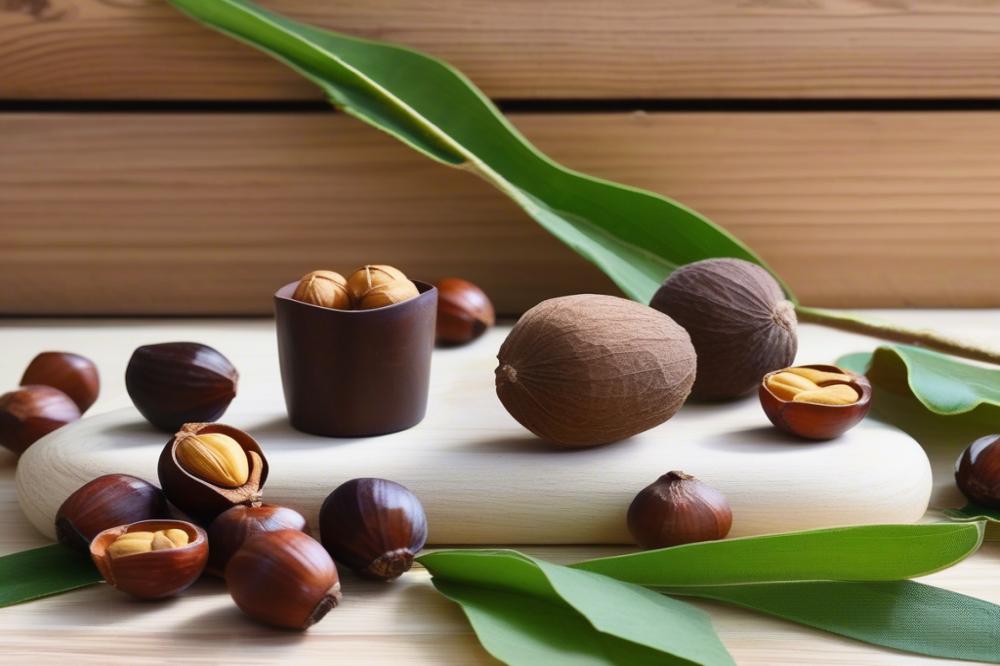

Soap nuts are a natural product derived from the soapberry tree, known for their effectiveness in pest management. These captivating little fruits contain saponins, which are natural compounds that act as an insect repellent. When they are crushed, saponins create a soapy solution that not only deters pests but also helps cleanse plants.
Harvesting soapberries is a careful process. Once the tree bears fruit, these berries are collected by hand, ensuring sustainability. This labor-intensive method respects nature and allows trees to thrive without harm. The connection to the environment is strong; the soapberry tree grows in various regions, promoting biodiversity.
Using soapberries aligns well with eco-friendly practices. Their biodegradable properties mean they break down naturally, leaving no harmful residue behind. Employing them in gardening and sustainable agriculture supports a healthier ecosystem while combating pests organically. Non-toxic methods of pest control like this safeguard beneficial insects such as bees and ladybugs, crucial for plant protection.
Incorporating soap nuts into pest management routines offers a holistic solution. Home gardeners and farmers alike can welcome this organic pest control option. As more people embrace natural alternatives, soapberries stand out as a smart choice that balances effectiveness with environmental care.
The Pest Deterrent Properties of Soap Nuts
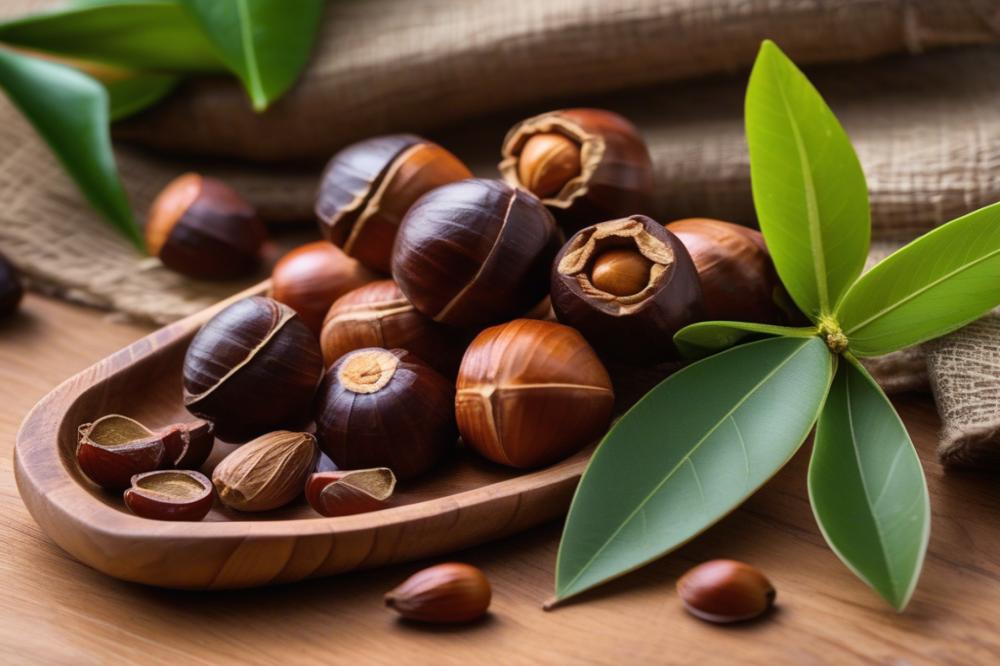

Soap nuts serve as an effective natural insect repellent. Their power lies in the saponins they contain. When these compounds come into contact with pests, they disrupt their ability to thrive and reproduce. This natural method offers numerous advantages for gardeners seeking organic pest control.
Common garden pests, such as aphids and spider mites, often pose a significant threat to plants. These soft-bodied insects can quickly inflict damage, leading to decreased plant health. However, the use of soapberry extracts can provide effective deterrence. In many cases, just a simple spray made from these nuts can drive these pests away.
Choosing soap nuts over traditional chemical pesticides offers several benefits. For one, they are eco-friendly and biodegradable. This means they won’t linger in the environment to cause harm. Additionally, they are non-toxic, making them a safe choice for households with children and pets. Implementing this approach supports sustainable agriculture as well, aligning with practices that protect both plants and the ecosystem.
Moreover, utilizing soap nuts contributes to effective pest management without the risks associated with harsh chemicals. They can reduce pest populations while minimizing the negative impact on beneficial insects. This eco-conscious choice enhances plant protection and encourages a healthier garden. Those who value gardening can appreciate both the simplicity and effectiveness of this natural solution.
Integrating soap nuts into your gardening routine can significantly improve pest control efforts. As gardeners become more aware of their options, the shift towards natural solutions continues to grow. Why not consider adding this organic approach to your arsenal? It’s a smart, sustainable alternative that may just change the way you think about pest deterrence.
Usage and Application in the Garden
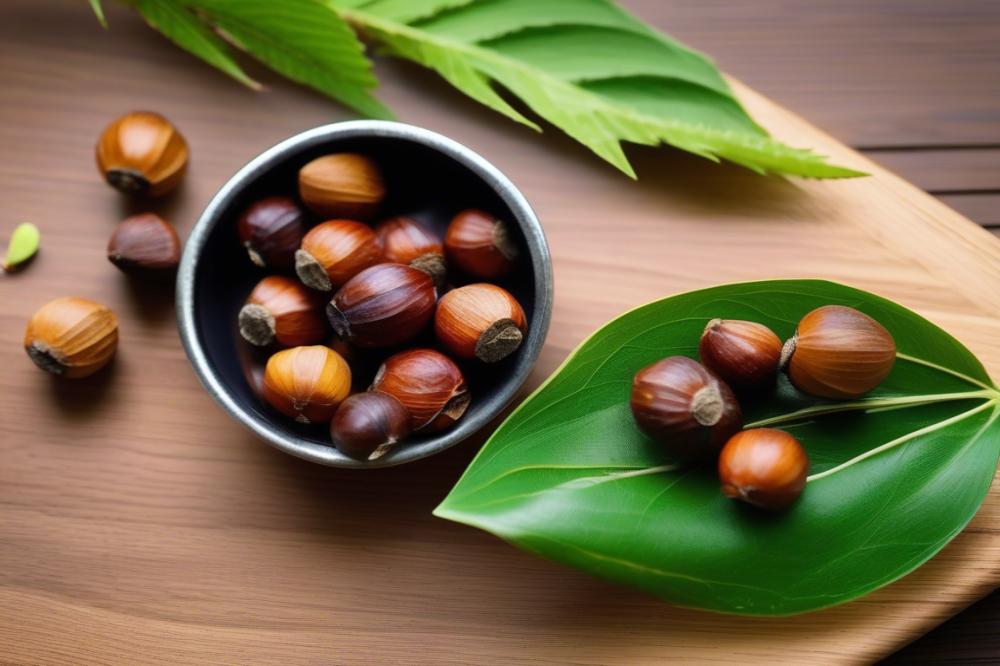

Using soap nuts in your garden can profoundly enhance your pest management strategy. These natural and eco-friendly ingredients offer a non-toxic way to keep bugs at bay. With a few simple methods, you can take advantage of their insect-repelling properties.
Making Soapberry Sprays
Create a soapberry spray by following an easy process. Start by taking about 10-15 dried soapnuts and place them in a pot of water. Boil the mixture for approximately 30 minutes. Allow it to cool, then strain the liquid into a spray bottle. This solution acts as an effective organic pest control agent. Spray it directly onto affected plants, focusing on the leaves and stems. Repeat this process every week for optimal plant protection.
Soaking for Strength
A soaking method is another approach to using soap berries. Simply soak a handful of soapnuts in water overnight. This will create a mild natural insect repellent. Use this water to water your plants or as a soil drench. Plants benefit from the nutrients released during soaking. Doing this bi-weekly ensures you maintain a strong defense against pests.
Adding to Compost
Incorporating soapnuts into your compost is a sustainable agriculture practice. Chop them up and mix them with your compost pile. Over time, they will break down and enrich the compost. This not only adds nutrients but also helps repel insects naturally. Regularly turning the compost will aid in this breakdown process. Aim to do this monthly for continuous benefits.
Application and Best Practices
Consistency is key when applying these methods. For spray applications, consistency in timing helps create a protective barrier. When using soaked soapberries, ensure they are applied during the growing season for maximum effectiveness. Regular applications promote stronger plants that can better resist pests.
Always monitor your plants after treatment. Look for any signs of pests and assess whether the applications are working. Adjust the frequency based on the level of pest activity you observe. This adaptive approach to pest management can lead to healthier, more robust gardens.
Comparing Soap Nuts with Other Organic Remedies
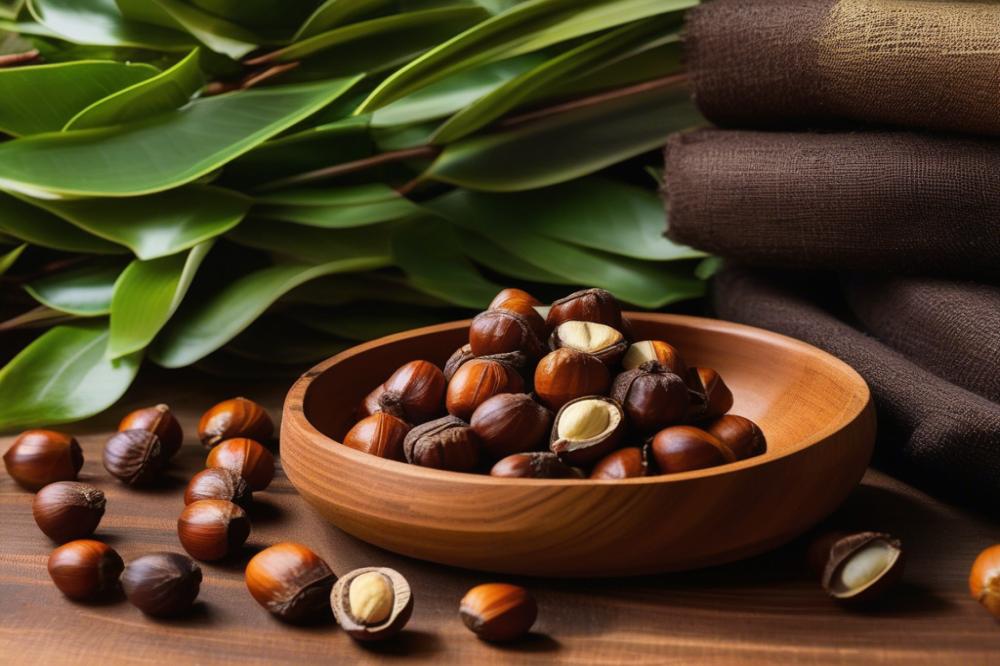

When it comes to tackling pests in our gardens, several organic options exist. Neem oil stands out as a powerful choice for many gardeners. This oil serves as both an insect repellent and growth regulator. It’s effective against a range of pests, from aphids to whiteflies. However, using neem oil requires some caution. The oil can harm beneficial insects if applied improperly.
Diatomaceous earth is another popular method. This natural powder is made of fossilized algae and works by dehydrating insects. Sprinkling it around plants creates a barrier against crawling pests. It’s eco-friendly and non-toxic, making it great for sustainable agriculture. Cleaning up after application can be tricky, though. Over time, rain can wash it away, requiring reapplication.
Garlic spray also makes its mark in the world of organic pest control. The strong scent of garlic acts as a natural insect repellent. It’s easy to make at home by blending garlic with water. While it might deter some pests, it doesn’t offer long-lasting protection. Frequent applications are necessary to maintain its effectiveness.
In a world of eco-friendly solutions, soapnuts provide a unique alternative. These soapberries naturally contain saponins, which repel various insects. They can be brewed into a liquid to spray on plants, making them easy to incorporate into any gardening routine. Soapnuts are biodegradable and non-toxic, aligning perfectly with a holistic approach to plant protection. Their use supports both pest management and the environment.
Choosing the right organic remedy depends on many factors. Effectiveness varies across different pests, and ease of use matters for busy gardeners. Evaluating environmental impact is crucial, too. Each option offers its pros and cons, but together they create a powerful toolkit for sustainable gardening. Diverse solutions enhance resilience against pests while fostering a healthy ecosystem.
Case Studies and Success Stories
Many gardeners have discovered the benefits of using soap nuts for pest management. These stories highlight how effective this natural product can be. Jane, an organic gardener from Oregon, faced a severe aphid problem. After spraying a diluted solution of soapberries on her roses, she noticed improved plant health within just a week. The aphids vanished, and her blooms flourished.
Another case comes from Tom, whose vegetable garden was under constant attack from cabbage worms. He decided to try soap nuts after reading about their properties as a non-toxic insect repellent. Within days, he saw a significant decrease in worm populations. His kale and cabbage thrived, free from harmful chemicals.
Research supports the effectiveness of this eco-friendly solution as well. A study conducted by the University of Sustainable Agriculture found that soapberry extracts significantly reduced the presence of several common pests. The research concluded it serves as a strong organic pest control alternative that encourages healthy plant growth.
Additional testimonials add credence to this approach. A community gardening group in California switched to soap nuts last summer. They reported a noticeable drop in insect activity, leading to fewer pest-related plant issues. Gardeners praised the biodegradable nature of soap nuts, appreciating that they contribute positively to the environment.
Penny, an outspoken advocate for sustainable gardening methods, shares her experience. After introducing soap nuts into her garden routine, she rejoiced at the natural protection they provided. Her flowers grew vibrant and robust, coupled with reduced needs for chemical treatments.
These success stories paint a clear picture. Gardeners around the country are harnessing the power of soap nuts. The results enhance plant vitality while promoting a healthier ecosystem. Through their dedication to using natural products, these gardeners set an excellent example of what effective pest management looks like.
Final Thoughts on Natural Pest Deterrence
Using soap nuts in gardening offers a practical and eco-friendly approach to managing pests. These natural solutions help protect plants without harmful chemicals. Many gardeners already appreciate the gentle effectiveness of this biodegradable option.
Sustainable methods contribute to a healthier environment. Embracing organic pest control not only benefits your garden but also the planet. By choosing natural strategies, you promote biodiversity and support the ecosystem.
Finding effective pest deterrents can be challenging, but integrating soap nuts into your routine is simple. These unique fruits can be soaked to create a liquid spray that wards off unwanted insects. This method is not only effective but also aligns with a green lifestyle.
Consider making the switch. Incorporating these nuts into your gardening practices can lead to healthier plants. You can combat pests without resorting to synthetic pesticides that may harm beneficial insects.
So, why not give it a try? Your garden deserves the best, and natural options can make a real difference. Protect your plants and the environment by choosing soap nuts for pest management today!

